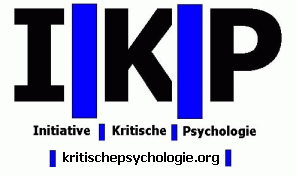1st Non-Monogamies and Contemporary Intimacies Conference
Sept. 25th–27th, 2015
Call for Contributions – Deadline 18th May 2015
(To see a longer version of this Call for Contributions, please go here) || PLEASE SHARE
Research in sociology, psychology, anthropology and contemporary history has shown that traditional concepts and practices regarding marriage, family, sexuality, and intimacy have been changing rapidly in recent decades. There have been radical revisions of thinking and practice not only related to sexuality but also involving gender roles, single-parenthood, family structures, contraception, abortion, and divorce. Many of these areas have been linked to transformations in broader social, economic and political constructs, such as same-sex marriage.
These changes are faced with mainstream negative representations of non-monogamy which describe it as "infidelity", "serial monogamy", or "failures" of the "normal" pattern of intimacy. Such perspectives assign a privileged role to the idealized couple, portrayed as intrinsically better. The dominant academic paradigm legitimates and strengthens monogamy's normativity. At the same time, academia frequently fails to acknowledge the existence of open, consensual non-couple-based forms of relationships, and of a-romantic and/or asexual intimacies. Moreover, even the limited existing research on consensual non-monogamies focuses mostly on English-speaking and socio-economically privileged white groups and communities.
The rise in critical discourses regarding normative sexualities and intimacies (and the ways in which these two elements interact) calls into question the traditional paradigm of lifestyles that have been at the core of the sex-gender system, as well as hetero-mono-normative institutions and practices in general.
Topics: With this conference, we intend to bring together research, activism and other forms of social expression, focusing on, but not limited to, the following topics:
- Research around the lived experiences of non-monogamies, especially those considered consensual;
- Ideological and representational changes in how intimacies are thought of;
- Intersections with race, sex-gender, sexual orientation, kinship, kink, sex work, class, culture, religion, dis/ability, asexuality, a-romanticism;
- Activism and community-building around non-monogamies;
- Reproduction of normativities and resistances: polynormativity and relationship anarchy, neo-liberalism and political contestation;
- Evolution of scientific discourses on non-monogamies;
- Challenges to counseling, psychotherapy, (public) health and legal frameworks around non-monogamies;
- The roles of mass media and new technologies around transformations of intimacy.
Our goal is community-building within and beyond academia in all its fields and disciplines, challenging traditional models of the hegemonic Global North system of knowledge production. Therefore, we encourage the submission not only of academic papers and thematic panels, but also round-table discussions, film screenings and debates, installations, activist-driven reflections and other modalities.
Language & accessibility: For logistic reasons, the conference's common language will be English, and abstracts must be submitted in English. If you wish so, you can also send us your abstract in another language, provided that you also submit it in English. It is highly recommended (but not mandatory) that presentations during the conference are in English. The venue is wheelchair-accessible. If you require a Sign Language interpreter, please contact us via email; unfortunately we cannot guarantee that this will be provided.
To submit: Abstracts of up to 250 words for individual submissions and up to 500 words for panel submissions, by May 18th, using this platform. Before submitting, please read the instructions HERE. Any doubts or technical difficulties should be addressed to the following email: nmciconference@gmail.com
Venue: Faculty of Social and Human Sciences (UNL) in Lisbon, Portugal
Read the Call for Contributions in other languages

Keine Kommentare:
Kommentar veröffentlichen